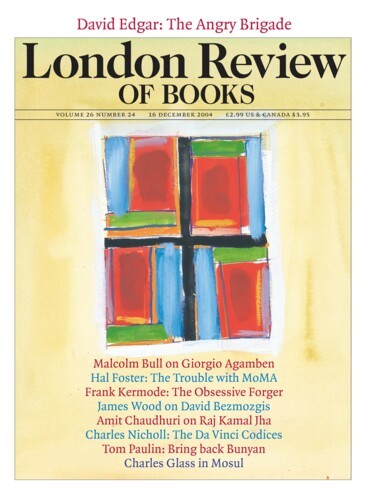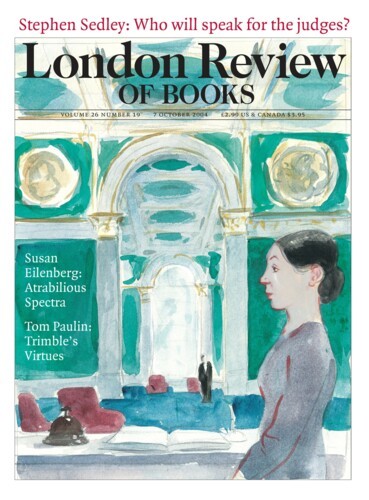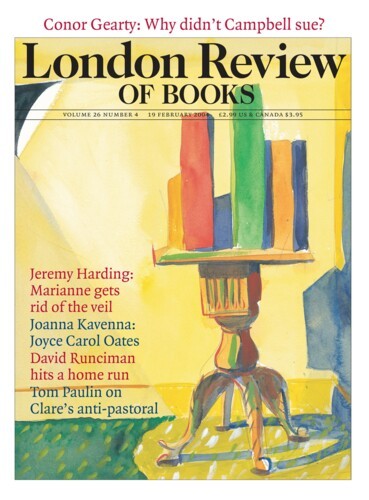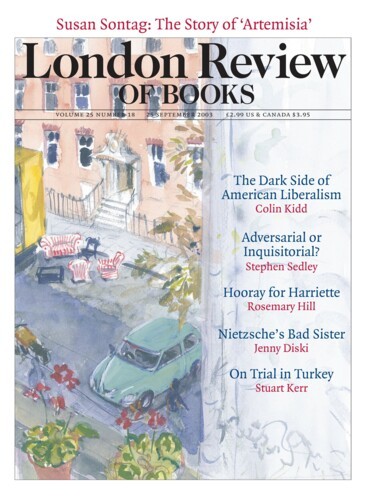Holy Boldness: John Bunyan
Tom Paulin, 16 December 2004
According to E.P. Thompson, The Pilgrim’s Progress and The Rights of Man are the two ‘foundation texts’ of the English working-class movement. It is above all in John Bunyan, he argues, that we find ‘the slumbering Radicalism’ which was preserved through the 18th century, and broke out again and again in the 19th.
Bunyan was born in a cottage on the edge of...





